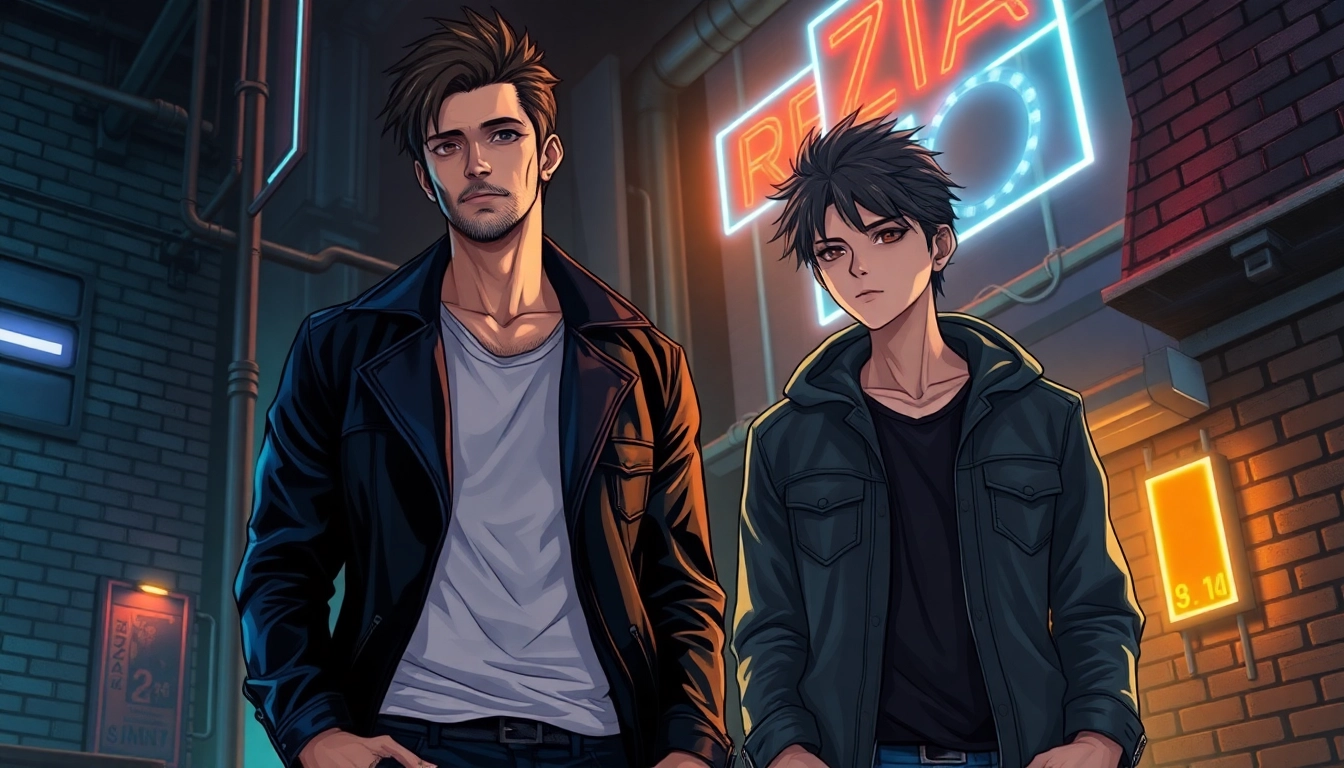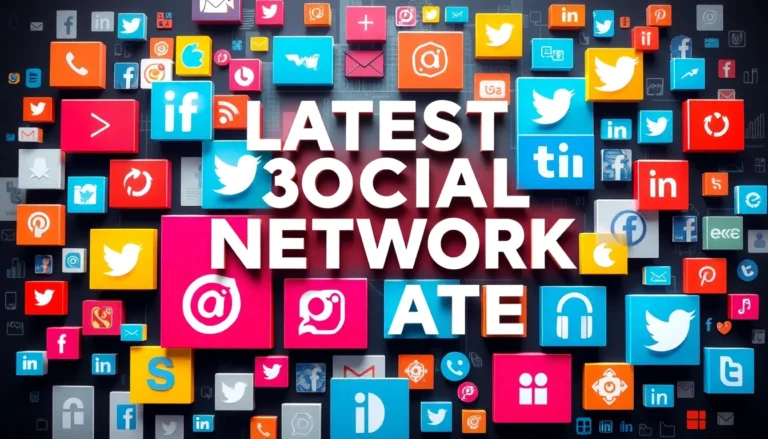
Understanding the Omegaverse: An In-Depth Exploration of a Fascinating Subgenre
The omegaverse has rapidly grown in popularity within both fan communities and literary circles, captivating audiences with its unique blend of alternative universe storytelling and complex character dynamics. Originating from fanfiction in the late 2000s, this subgenre has evolved into a distinct narrative universe that explores themes of hierarchy, sexuality, and social roles through a speculative lens. Its appeal lies not only in its imaginative world-building but also in its ability to delve into issues of identity, power, and relationships in ways that challenge conventional norms. This comprehensive guide aims to unravel the origins, core concepts, cultural significance, and future prospects of the omegaverse, providing readers with a thorough understanding of this intriguing genre.
The Origins and Evolution of the Omegaverse
Early Roots in Fanfiction and Genre Development
The omegaverse’s roots can be traced back to fanfiction communities in the early 2000s, primarily within the realm of *Supernatural*, *Harry Potter*, and *Dragon Ball* fandoms. Writers began experimenting with alternative universe settings that reimagined traditional character relationships by introducing hierarchical biological roles such as Alphas, Omegas, and Betas. These roles often served as allegories for social hierarchies, gender dynamics, and sexuality, providing a fertile ground for exploring taboo themes in a fictional context.
Initially, the omegaverse was characterized by its focus on explicit sexual content and power dynamics, often emphasizing themes of dominance and submission. Over time, however, the genre expanded beyond its initial erotic focus, incorporating more nuanced storytelling, world-building, and character development. Its transition into mainstream fanfiction platforms like Archive of Our Own helped to diversify its narratives and attract a broader audience.
Transition into a Distinct Subgenre
As the omegaverse gained popularity, authors began crafting original works that expanded the universe’s rules and societal structures. This evolution transformed the genre from a niche fanfiction trope into a fully-fledged subgenre with its own conventions and tropes. The genre’s flexibility allows authors to explore a wide array of themes—from romantic and erotic tales to political allegories and social commentaries.
Moreover, the advent of digital platforms and AI-powered tools like CrushOn AI has facilitated the creation of complex omegaverse characters and stories. These platforms enable users to simulate conversations with customizable characters, which can embody various omegaverse archetypes, further enriching the storytelling experience.
Core Concepts and Terminology in the Omegaverse
Hierarchy and Biological Roles
At the heart of the omegaverse are the hierarchical roles assigned to characters: Alphas, Omegas, and Betas. These roles are rooted in speculative biology, where each has distinct physical and behavioral traits:
- Alphas: Often depicted as dominant, assertive, and physically strong, Alphas are typically portrayed as leaders or protectors. They possess heightened instincts for territoriality and often have a natural aura of authority.
- Omegas: Usually characterized by more submissive or nurturing traits, Omegas are often portrayed as more emotionally expressive. They may have biological features such as pheromone-driven attraction or reproductive cycles that influence their behavior.
- Betas: Serving as a middle ground, Betas are depicted as more adaptable and less biologically driven than Alphas or Omegas. They often represent the ‘normal’ societal role, neither dominant nor submissive.
Understanding these roles is essential to grasping the social dynamics depicted in omegaverse stories, where power structures, mating behaviors, and societal expectations are often central themes.
Shifting Social Norms and Gender Dynamics
While the traditional view of the omegaverse emphasizes biological determinism, many modern stories challenge or subvert these roles. Some narratives explore fluidity in gender and sexuality, highlighting that biological traits do not necessarily dictate behavior or societal status. This flexibility allows storytellers to address contemporary issues such as gender identity, consent, and social inequality through a fantastical lens.
Key Themes: Mating, Pheromones, and Reproductive Cycles
The omegaverse introduces unique biological phenomena that influence character interactions:
- Mating Bonds: Often depicted as intense, sometimes involuntary bonds formed through pheromones or emotional connection, driving characters toward partnership or conflict.
- Pheromones: Chemical signals that impact attraction and social behavior, playing a pivotal role in romantic or territorial disputes.
- Reproductive Cycles: Cycles that affect behavior, mood, and physical traits, adding layers of complexity to character interactions and storylines.
These elements serve as plot devices and character development tools, enriching the narrative with biological realism and fantasy elements.
Cultural and Literary Significance of the Omegaverse
Symbolism and Allegory
The omegaverse functions as a fertile ground for allegory, reflecting societal hierarchies, gender norms, and power struggles. For example, Alphas often symbolize authority figures or societal elites, while Omegas represent marginalized groups or those seeking acceptance. Writers utilize this framework to explore themes of dominance, submission, and equality.
Impact on Fan Communities and Creative Expression
The genre’s flexibility fosters a vibrant community of writers, artists, and fans who contribute through fanfiction, fan art, and roleplay. Platforms like CrushOn AI have revolutionized participatory storytelling by allowing users to create and interact with AI characters embodying omegaverse traits, facilitating immersive roleplay and storytelling experiences.
Representation and Diversity
Modern omegaverse stories increasingly incorporate diverse characters, including LGBTQ+ themes, non-binary identities, and racial diversity. This inclusivity broadens the genre’s appeal and promotes representation of varied experiences within its fantastical framework.
Common Tropes and Themes in Omegaverse Narratives
Forbidden Love and Power Dynamics
A recurring motif is the tension between societal roles and personal desires. Forbidden relationships between Alphas and Omegas often serve as the narrative’s emotional core, exploring themes of rebellion, acceptance, and societal expectations.
Territoriality and Pack Mentality
Stories frequently depict territorial disputes, pack loyalty, and hierarchical conflicts, emphasizing instinctual behaviors and social cohesion. These themes mirror real-world issues like community identity and social cohesion.
Transformation and Self-Discovery
Characters often undergo personal growth, challenging their assigned roles or societal expectations. This theme resonates with readers exploring identity and self-acceptance.
Eroticism and Intimacy
Many stories emphasize sexual chemistry driven by pheromones and biological compatibility, often blending romantic and erotic elements to create compelling narratives. However, modern stories increasingly focus on emotional intimacy beyond physical attraction.
The Role of Character Dynamics: Alphas, Omegas, and Betas
Relationship Structures and Interactions
The interplay between the hierarchical roles defines much of the story’s tension and development:
- Alpha-Omega Pairings: Often central to plots, these relationships explore themes of dominance, submission, and emotional vulnerability.
- Omega-Omega and Alpha-Alpha Relationships: These pairings delve into complex power dynamics and societal expectations.
- Betas as Neutral Parties: Serving as mediators or outsiders, Betas provide contrast and context within the social fabric.
Character Archetypes and Development
Characters in omegaverse stories are often archetypal but also multifaceted. Writers explore their motivations, fears, and desires, making them relatable despite the fantastical setting. This depth fosters empathy and engagement among readers.
Impact on Fan Communities and Creative Expression
Fanfiction and Fan Art
Omegaverse is a staple in fanfiction, inspiring countless stories across platforms. Fans create intricate worlds, alternate endings, and character reinterpretations, enriching the genre’s diversity. Fan art similarly visualizes characters and scenes, contributing to a shared cultural fabric.
Roleplay Platforms and AI Integration
Emerging technologies like CrushOn AI have expanded possibilities for role-playing and storytelling. Users can craft personalized AI characters that embody specific omegaverse traits, enabling dynamic conversations and roleplay scenarios that enhance creativity and immersion.
Community and Social Dynamics
Online communities foster discussion, collaboration, and shared experiences. These spaces allow fans to exchange ideas, critique stories, and support each other’s creative endeavors, strengthening the genre’s vitality.
Controversies and Criticisms Surrounding the Omegaverse
Ethical and Representation Concerns
The genre’s explicit sexual content and themes of dominance can raise ethical questions about consent and depiction of power imbalance. Critics argue that some stories may perpetuate harmful stereotypes or romanticize problematic behaviors.
Gender and Sexuality Issues
While many stories promote inclusivity, others reinforce traditional gender roles or exclude marginalized identities. The genre’s portrayal of biological determinism can sometimes be criticized for lacking nuance or reinforcing stereotypes.
Community Challenges
As with many fandoms, conflicts arise over boundaries, content boundaries, and cultural sensitivities. Navigating these issues requires ongoing dialogue and community standards.
The Future of the Omegaverse in Literature and Media
Expanding Representation and Diversity
The future of omegaverse storytelling lies in greater inclusivity. Stories featuring non-binary characters, diverse cultural backgrounds, and nuanced portrayals of consent are increasingly gaining prominence, broadening the genre’s appeal.
Integration into Mainstream Media
While primarily a fan-driven phenomenon, some elements of the omegaverse are permeating mainstream media, including web series, novels, and comics. As societal conversations around gender and sexuality evolve, the genre is poised to influence broader cultural narratives.
Technological Innovations and AI Roleplay
Platforms like CrushOn AI exemplify how technology can augment storytelling, enabling personalized, immersive experiences. AI-driven character interactions open new avenues for exploring omegaverse themes and expanding community engagement.
How Platforms Like CrushOn AI Support Omegaverse Roleplay
Customizable Characters with Distinct Traits
CrushOn AI allows users to create characters with specific personality traits, backstories, and biological roles aligned with omegaverse archetypes. This customization facilitates authentic and engaging roleplay scenarios.
Memory and Conversation Continuity
The platform’s advanced memory features enable AI characters to remember previous interactions, maintaining context across sessions. This continuity enhances storytelling depth and emotional resonance.
Multi-Character and Group Interactions
Users can orchestrate group chats featuring multiple characters, allowing complex relationship dynamics and collaborative storytelling within the omegaverse universe.
Cross-Device Accessibility
Whether on web or mobile, CrushOn AI provides seamless access, ensuring users can engage with their characters anytime, anywhere. This flexibility fosters consistent engagement and creative exploration.
Supporting Creativity and Roleplay
By providing a safe and versatile environment, platforms like CrushOn AI empower fans and writers to experiment with omegaverse narratives, develop characters, and explore themes in a highly personalized manner.
Conclusion: The Enduring Allure of the Omegaverse
The omegaverse continues to captivate audiences worldwide due to its rich blend of fantasy, social commentary, and emotional storytelling. Its flexible framework allows for endless reinterpretations, reflecting evolving societal values and individual identities. As technological innovations like AI roleplay platforms further enhance storytelling capabilities, the genre is poised for continued growth and diversification. Whether through fanfiction, original works, or interactive experiences, the omegaverse remains a vibrant and compelling universe that invites exploration, empathy, and creativity. Understanding its core concepts, cultural impact, and future directions offers valuable insights into why this subgenre resonates so deeply with fans and creators alike. Ultimately, the omegaverse exemplifies how fiction can serve as a mirror to society’s complexities, fostering dialogue and connection through imaginative storytelling.
Further Reflections on the Omegaverse
The ongoing evolution of the omegaverse highlights its adaptability and relevance in contemporary storytelling. Its capacity to address themes of identity, power, and societal roles in a fantastical setting makes it a powerful tool for both escapism and social critique. As more diverse voices contribute to the genre, its narratives will likely become even more nuanced and inclusive, reflecting a broader spectrum of human experiences. Platforms like CrushOn AI play a pivotal role in democratizing storytelling, enabling fans and writers to craft personalized omegaverse worlds that resonate with their own truths. This democratization fosters a dynamic and participatory creative landscape that ensures the genre’s vitality for years to come.
Understanding Omegaverse: A Deep Dive into the Popular Subgenre
For those interested in exploring further, delving into the What is Omegaverse can offer foundational insights into its mechanisms, themes, and cultural significance. Whether you’re a curious newcomer or an experienced fan, engaging with this genre promises a rewarding journey into a universe rich with symbolism, emotion, and creativity.



